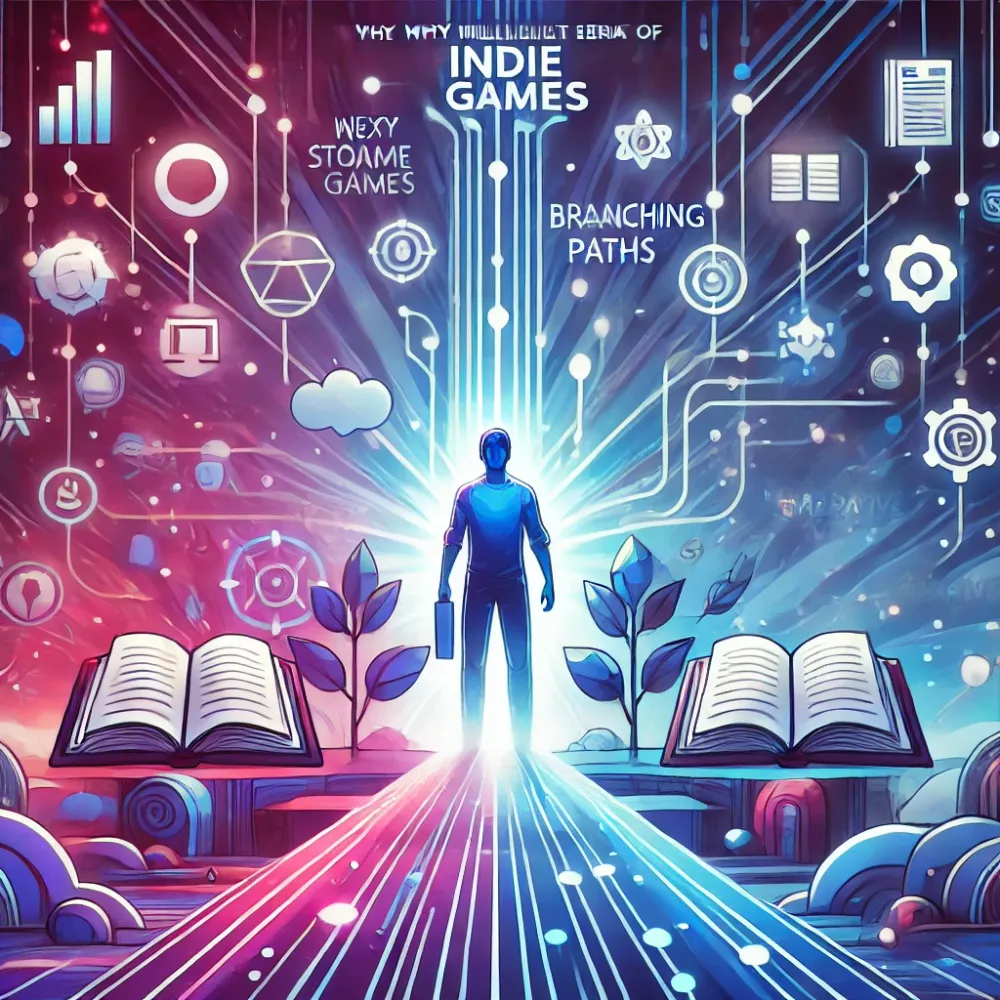Why storytelling will define the next era of indie games
Storytelling has always been a cornerstone of human experience, and in the world of indie games, it has become an even more critical element. While big-budget games often prioritize flashy graphics and expansive worlds, indie developers are using storytelling to create rich, emotional experiences. As we look ahead, storytelling is set to define the future of indie games, offering players narratives that challenge, inspire, and immerse them in ways never seen before.
1. The power of narrative immersion in indie games
Indie games are renowned for their ability to seamlessly integrate narrative elements with gameplay, offering players agency and control over the story’s direction. This immersion allows players to engage deeply with the world and characters, making their decisions feel meaningful. Games like Undertale and Celeste have exemplified this by giving players choices that significantly affect the story’s outcome, intertwining the narrative with the player's journey(Fictionphile).
Unlike traditional games that often rely on linear storytelling, indie games frequently explore branching narratives, offering multiple endings and moral dilemmas. This personalized narrative experience not only keeps players engaged but also encourages replayability, as they are driven to explore alternate storylines(OccaSoftware).
2. Tackling complex and taboo themes
Indie developers are also leading the charge in addressing complex and often taboo themes that larger studios may avoid. Games like Papers, Please and This War of Mine dive into themes of authoritarianism, immigration, and moral ambiguity, offering players a chance to confront difficult issues through interactive storytelling.
This willingness to explore sensitive topics not only makes these games memorable but also gives them a unique emotional depth, setting them apart from mainstream titles.
Additionally, many indie games take a nuanced approach to mental health, as seen in Celeste, where the protagonist’s struggle with anxiety is woven into the core of the gameplay mechanics. By integrating these themes into both the story and gameplay, indie developers create experiences that resonate deeply with players on a personal level.
3. Interactive storytelling as a tool for emotional engagement
Interactive storytelling allows indie games to forge powerful emotional connections with players. Adventure games, in particular, excel at this by blending puzzles, exploration, and character-driven plots. Titles like The Walking Dead and Life is Strange are celebrated for their emotional depth, giving players the ability to shape the narrative through their choices(Adventure Gamers).
Moreover, the impact of interactive storytelling extends beyond the screen. Many indie games use their narratives to raise awareness of real-world issues, encouraging players to reflect on their own experiences and the world around them. This kind of emotional engagement fosters a strong connection between the player and the game, resulting in a more immersive and memorable experience.
4. The future of storytelling in indie games
As technology evolves, the future of storytelling in indie games promises even more innovation. The rise of procedural storytelling, where narratives are generated dynamically based on player actions, is pushing the boundaries of what’s possible. Games like Blaseball and Wildermyth are early examples of how procedural generation can be used to create endless storytelling possibilities.
Additionally, emerging technologies such as virtual reality (VR) and artificial intelligence (AI) are set to redefine how stories are experienced in games. Personalized narratives, where the story adapts to the player's actions in real-time, are becoming more feasible. This opens the door to more immersive and reactive storytelling, further blurring the lines between the player and the game world.
Storytelling has always been a vital component of gaming, but indie games are pushing the medium to new heights. By focusing on narrative immersion, tackling complex themes, and exploring innovative storytelling techniques, indie developers are setting the stage for the next era of gaming. As technology continues to evolve, storytelling will remain at the heart of the most memorable and impactful gaming experiences.




